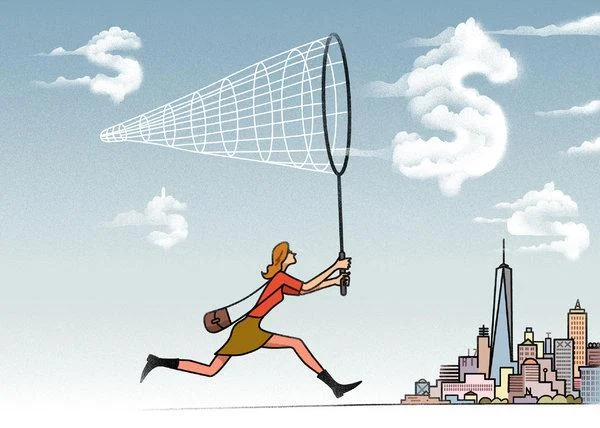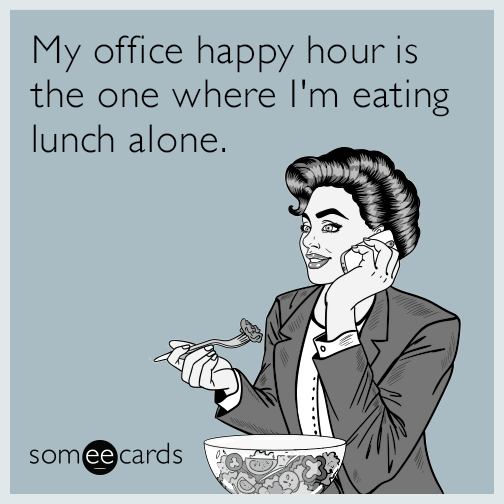Taking a Personal Leave of Absence
When I heard that my friend/colleague from my previous firm was taking four months off from work, my immediate reaction was jealousy and curiosity. I immediately asked her a ton of questions to figure out how she made this happen for herself as I know she works in a very high-pressure and demanding role at a global financial services firm in NYC known for its cutthroat culture. It made me realize that many of us have been in the workforce now for 5+ years and we are starting to feel burnt out, confused, or overwhelmed by our careers. Sometimes I feel like the only way to give myself time to breathe and figure things out would be to quit my job. But now I know there is the option to take unpaid personal time, a benefit that most companies offer yet very few people take advantage of for a number of reasons including fear of judgement, loss of income, or being replaced.
A sabbatical is typically a mutually agreed upon break for a specific purpose such as professional growth or development or for a personal project such as volunteering etc. Depending on your title and the firm policy in general, this may be fully paid, partially paid, or unpaid time off.
Personal time-off is a bit more open-ended but is typically unpaid depending on your title and the duration of time off.
More info on the various types of paid and unpaid leave is available here.
Julia Roberts in Eat, Pray, Love
How long have you been working at your company?
It’s been about 6 years since I started working at my current company.
What is your title?
I’m a Vice President in the Finance Division. The ranking is as follows from most junior to most senior: analyst, associate, vice president, managing director, partner
Describe your role in simple (non-technical) terms?
My primary role is to ensure that our stakeholders receive accurate financial information on my company.
Use 3 adjectives to describe the working environment/ work culture?
Adaptable, diligent, and team-oriented. With the 6 years I’ve spent at the firm, it’s gone through many changes and so has our team. However, even in those situations, some more challenging than others, we were able to pull through and be proud of what we were able to accomplish together.
Describe your relationship with your manager.
My relationships with my managers can be described as open and honest. I think in any well-sustained professional relationship, there’s an acknowledgement of respect and the capabilities of those you work with. With that in mind, I would be able to joke around with them as well.
What inspired you to request a personal leave?
Not sure if inspired would be the most appropriate word for the root cause of why I requested time off. It was a combination of being burnt out and feeling like I needed change, but most of all due to personal/family reasons. Without going into too much personal details, there were things that need to get resolved which required real quality time and I knew that I wouldn’t be able to pull it off successfully without letting anyone down including myself and work.
How did you decide the length of time to take off?
Honestly, the length of time was one that I debated the longest on. Since I’d be traveling out of the country, there had to be sufficient time, but also something that I could maintain with my current finances. Depending on the type of leave, you may be getting a percentage of your paycheck or, in my case, nothing at all.
What was your managers’ response?
Generally, my managers were supportive. I spoke to my direct manager and they were able to provide guidance on next steps, honest expectations and concerns. As I went up the chain, I was surprised by the amount of support received from my managers and the firm. They genuinely had my best interest in mind and tried their best to understand my situation.
How did your colleagues react?
I’m honestly a very lucky person to have be able to work with such a family-like group that cared for me. Some of my colleagues were so shocked that I was met with tears, but the general response was that they wished me luck and couldn’t wait to have me back... and that they were super jealous.
How did you prepare yourself for the conversation with your managers?
In order to prepare myself for the sit-down with my managers and the team, I did what anyone would do, I Googled and asked for advice from friends and family. Some of the helpful tips I found online were to be honest about why you’re seeking (not demanding) time off while giving them the assurance that you aren’t looking to leave for good. If you’re on good terms with your team and your company, their biggest fear is probably losing you. My sibling was behind me 100%, even offering to help out with finances, if I needed it. After doing some research and confiding in those I trust, I was ready to have the talk. It can be difficult, but always be sure on what you’re asking for and be flexible, where possible.
What did you plan to do during your personal time off?
Before I left on my leave of absence, my plan was to take a week to prepare and then go off to visit my family (in a different country). If I had some extra time, I’d travel to nearby countries since this is probably going to be the last time I can take an extended leave from work.
What did you actually do during your time off?
Time sure flies. The first part of the plan worked out just fine, but I definitely didn’t get to travel to many different countries, just one. After spending time with my family and taking care of things personally, I was too overwhelmed and not the least bit excited about planning trips to foreign countries. Instead, I took time to discover a bit more about myself and the country I was from. I went coast to coast, sometimes meeting friends of family and even bumping into college alumni (on the metro!) purely by chance. It was a nice surprise to know there are other people, quite a lot in fact, traveling all around the world and even moving to countries they’re not from. I was able to meet friends, old and new, and listen to the different stories of their lives.
What do you wish you could’ve done differently?
The only thing I regret is not packing well enough. Mother nature wasn’t feeling so good so I happened to get a lot of cold rain. In the end, I fell sick and the medicine over there just wasn’t working. Also, it was tough finding out how to see a doctor there. For about 3 weeks I was sick and coughing my lungs out. I don’t usually get sick, but next time I’m packing emergency medicine.
How did it feel to return to work?
Returning to work was rough. Being back on a tight schedule in the morning, the commute and most of all trying to find my place again. I was gone for 3 months and a lot changed since I left. There were new folks on the team and on the floor that I didn’t know anymore. I was able to successfully train various members of my team to take on my primary functions and thankfully my managers offered me a new role. It took me quite some time to get rooted again, but I’m glad that I was being welcomed back.
How has your perspective on work changed?
I remember seeing an old colleague of mine for happy hour after I came back. She mentioned that I seemed more cheerful and confident since she saw me last. That got me thinking on how my perspectives have changed. Let me be brutally honest though and say that it’s been almost a year now so I’m not sure if what I recall is true. Anyway, I’m at my current company because I enjoy working with my team, I respect my managers, I like the culture of the firm and my role is challenging. However, I know that the reason I’m working is to finance what I do in life and my life is number one. The number of hours I work in a week may change depending on the urgency/needs at that time, but I’ll be able to prioritize more effectively. The better I do this, it shows in my work product, my level of happiness and also how pleasant I am to work with for those around me.
What advice do you have for someone who wants to do the same?
My advice to someone who’s thinking about taking time off work is to make sure to plan. Plan for what you would do and accomplish during your time off. Make sure you’ve saved up enough to survive for the time you’re not working. Think about whether you really do want to return to work and, if you do, talking to your manager should be an open dialogue, not a posting/ultimatum. Use all your resources. Your friends and family know you best so keep them in the loop and they should also be able to give you advise as well. You’re not alone.





